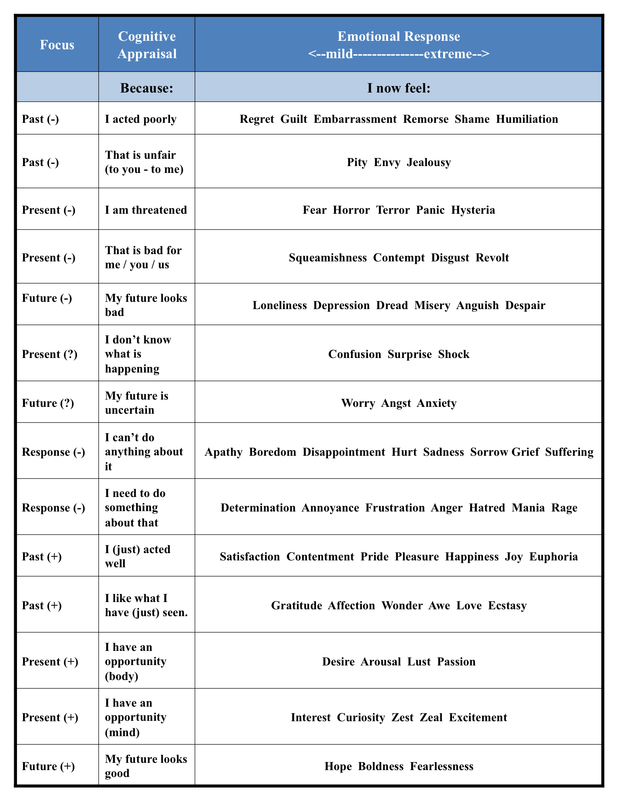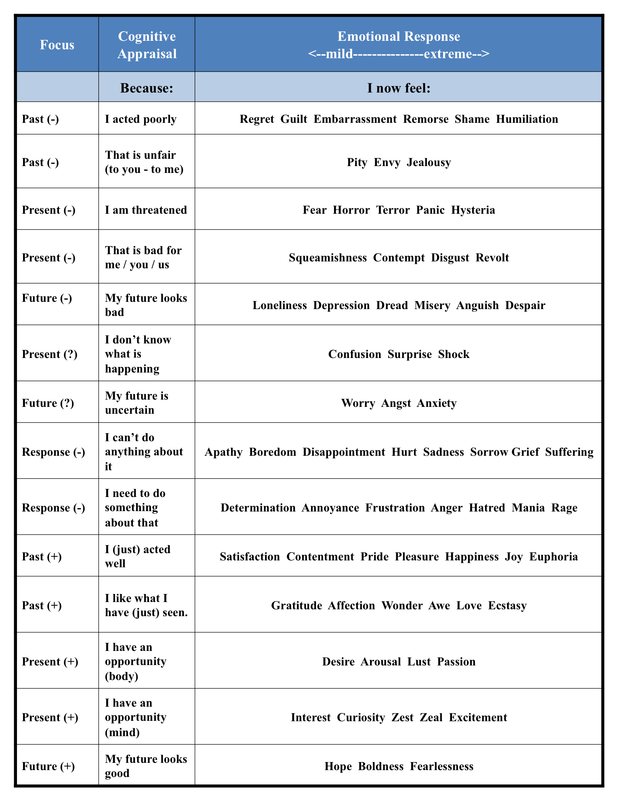First, here is what I've written about needs and desires. It's short, but bears repeating.
The body and mind together have requirements for them to function properly. Abraham Maslow in 1943 devised the currently definitive list and hierarchy of these needs.
- Physiological: breathing, food, water, sex, sleep, homeostasis, excretion
- Safety: security of body, employment, resources, morality, the family, health, property
- Love / Belonging: friendship, family, sexual intimacy
- Esteem: self esteem, confidence, achievement, respect of others, respect by others
- Self-actualization: morality, creativity, spontaneity, problem solving, lack of prejudice, acceptance of facts
Maslow later listed additional needs for those who live self-actualized lives. Truth, goodness, beauty, unity, aliveness, uniqueness, necessity, completeness, justice, order, simplicity, richness, effortlessness, playfulness, self-sufficiency, meaningfulness. Knowledge of these comes from philosophy. Once again, you must know philosophy to live life at its highest level. Know these needs and desires. Work to have them met. All of them. Higher order needs require the control of lower order needs. You must master them. Organize society to help individuals meet them.
How are you doing at meeting these needs and desires? At the root of my philosophy, I've pared things down to the essential truth that we are living things trying to stay alive in an uncaring universe. That sounds to some like a bleak call for meeting the minimum requirements for survival, and on occasion, that is all that we are reduced to. But in the long run, we need much more than this to want to survive. In the long run, the need for survival builds up a much more robust set of requirements. As basic physiological needs are met, we move up Maslow's hierarchy, aching for higher and higher needs that lead to longer and longer timelines of satisfaction and survival.
In Aristotle's view of ethics, he described an ideal state of man as one of eudaimonia. Historically, this word has often been translated simply as "happiness", but taken in full context, scholars now agree that Aristotle meant something more than our modern understanding of mere pleasurable happiness - he meant something closer to what can be described as human flourishing or thriving. Look again at the list of needs and desires that Maslow described above. These are a psychologists list of what it takes to flourish. This is what it takes, from a scientific point of view, for humans to thrive and survive.
In this lull between Christmas and New Years Day, once the families have been visited, the celebrations with friends have paused, the gifts have been put away, and the days have some spare time for contemplation, many of us take stock of the past year, make plans for the next one, and decide on a few resolutions to help us improve our lives. As you go through this ritual this year, keep Maslow's list in mind. Remember that the higher needs are completely undermined when lower ones go unmet. Remember that lower ones are not enough to achieve the flourishing state of eudaimonia that is necessary for long term surviving and thriving. Build a strong and unassailable base. Stretch yourself and meet higher aspirations. Know thyself. Choose your resolutions accordingly.
Do you have any resolutions that have worked for you in the past? Do you have any plans for big ones this year? What about tips to turn resolutions into lifelong habits? Share them in the comments below and help us all flourish. Until next week, have a happy new year!




